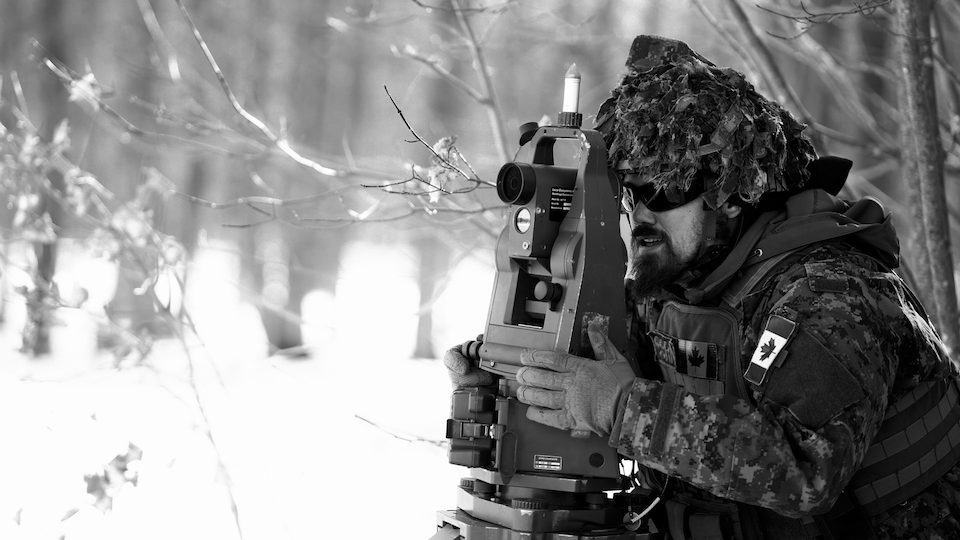
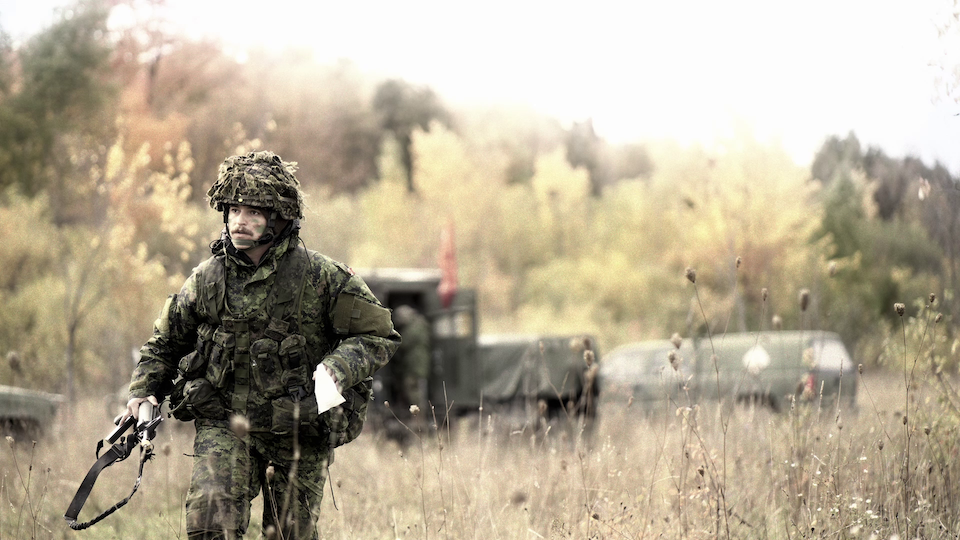
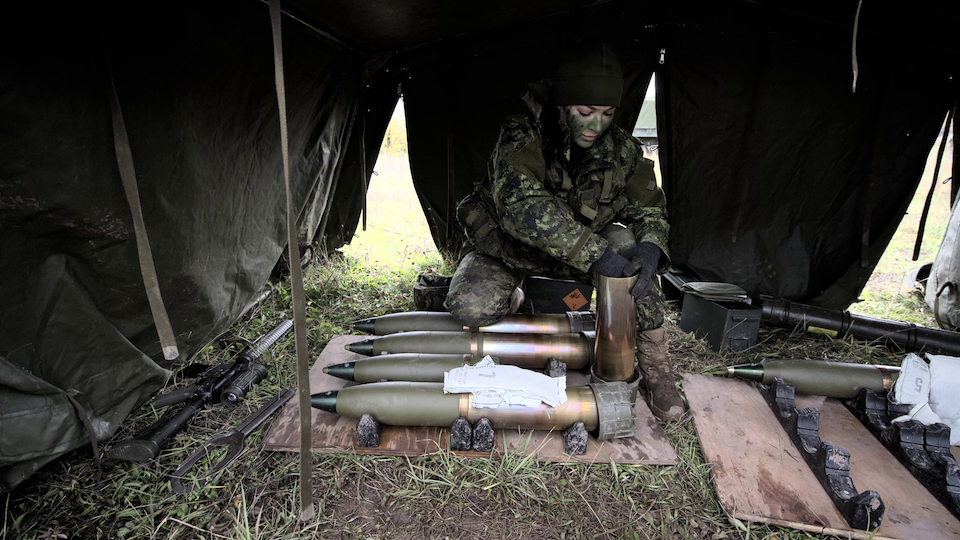
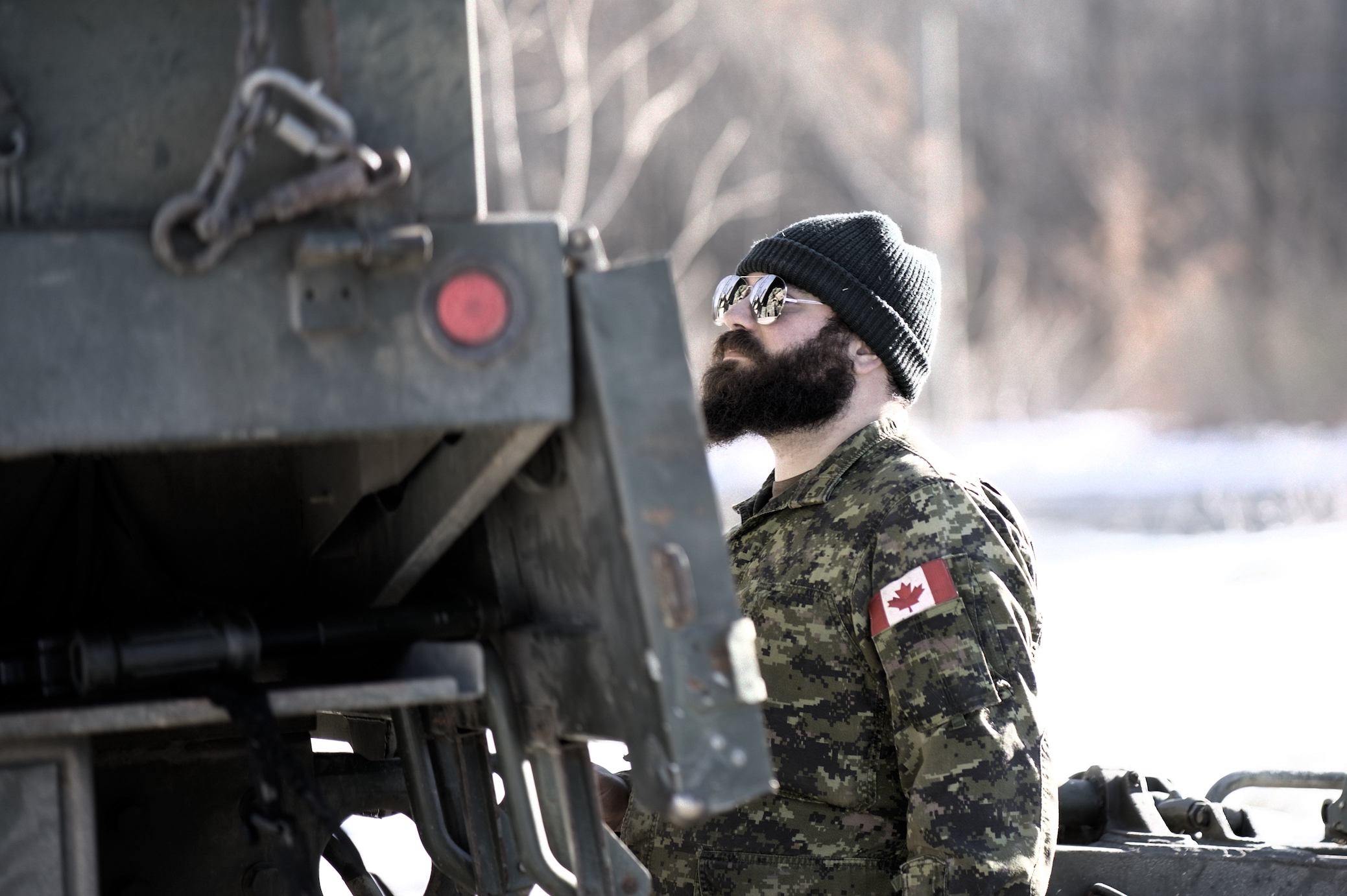
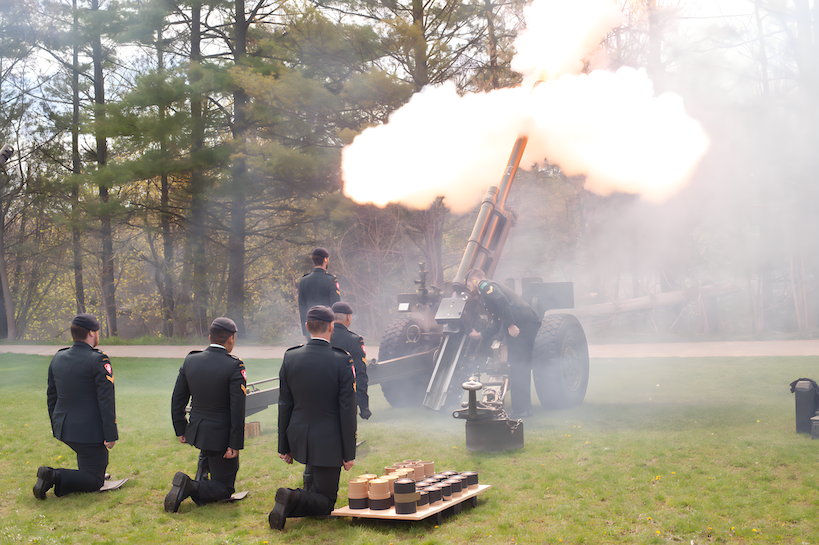
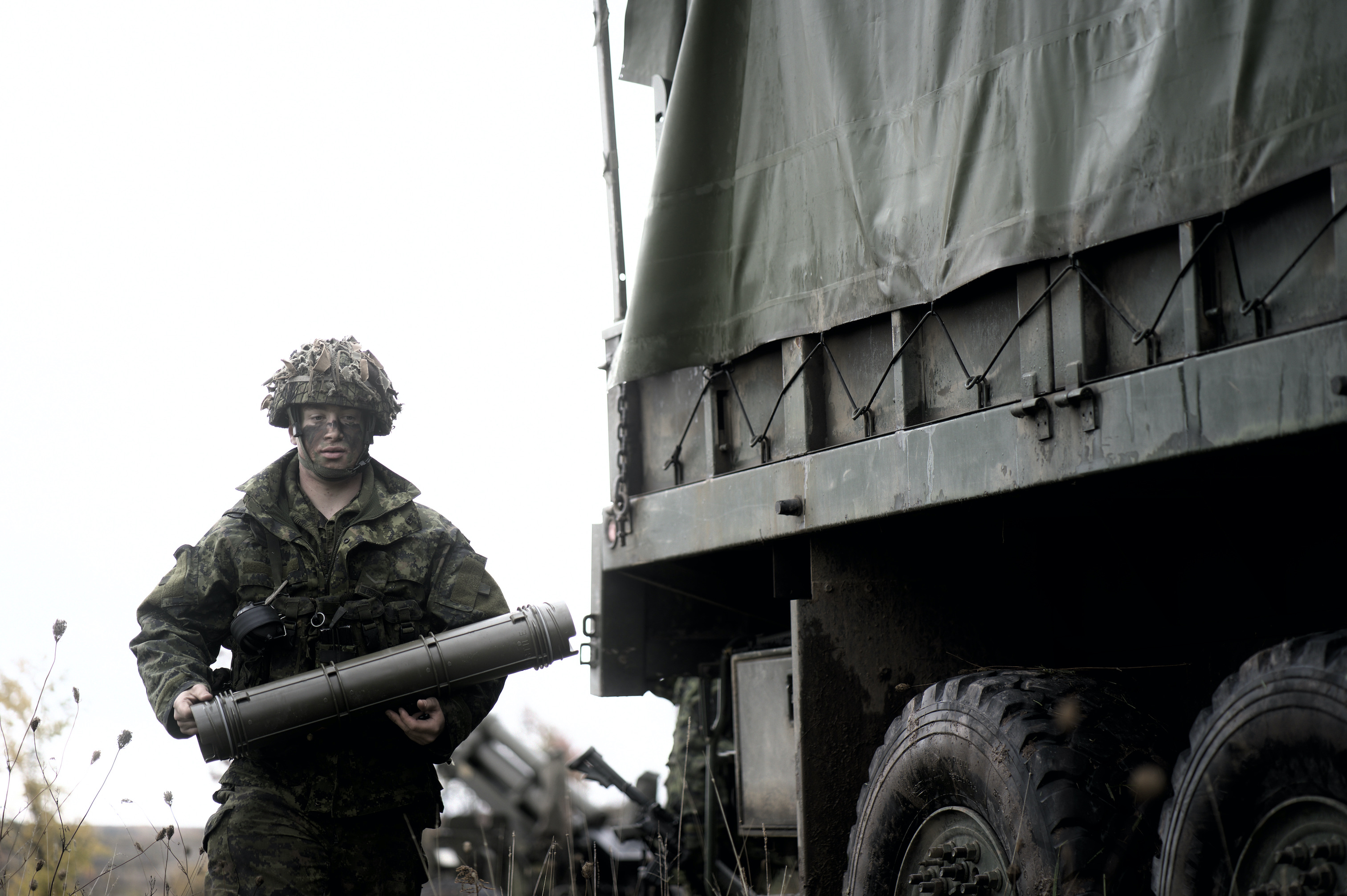
All members of the CAF must be capable of performing the common tasks contained in the Officer and Non-Commissioned Member (NCM) General Specifications. These common tasks are universal in nature and pertain to fundamental expertise, cognitive, social, change and professional ideology competencies, which when combined deliver the appropriate leadership and management capacities.
To perform these duties/tasks effectively, which involve activities outside their occupation and environment, members of the CAF must attain levels of competencies commensurate with their rank. These common competencies complement and reinforce the environmental and occupational skills and knowledge acquired through occupational training and enable members of the CAF to perform effectively at all levels in the CAF. It is these specifications that call up the type, timing, and quality of Professional Development (PD) required by each Officer at each stage of their development and consequently form the foundation of professional development in the CAF as reflected by the design of the Developmental Periods (DP) within the Canadian Forces Professional Development System (CFPDS).
A Developmental Period (DP) is a timeframe in a career during which an individual is trained, educated, employed and given the opportunity to develop specific occupational or professional skills and knowledge. DPs are distinguished by a progressive increase in the levels of accountability, responsibility, authority, competency, military leadership ability and the knowledge of operations and war. Accordingly, the CFPDS is designed to meet the unique developmental needs of the NCM. It is defined by five DPs each of which encompasses one or more ranks. Training, education and experience within a DP prepare the NCM not only for effective employment in that DP but also for progression to subsequent DPs.
The purpose of the Developmental Period 1 is to focus development towards achieving the required skills and knowledge for CAF entry level employment and further training. The formal developmental requirements include achievement of the Basic Military Qualification, environmental and occupational qualifications. Development of second language ability may also be indicated but only to the extent necessary to fill positions related linguistic requirements.
After achieving the developmental requirements of DP1, Non-Commissioned Members (NCMs) are deemed to be occupationally employable at the introductory level. Progression into DP 2 takes place when the member joins a unit and leaves the Basic Training List.
The purpose of the DP 2 is to prepare NCMs for supervisory employment related to the member’s environmental affiliation (Army/Navy/Air Force) and occupation (trade).
The focus of development in DP 2 is twofold:
The formal development requirements for DP 2 are the Primary Leadership Qualification and environmental and occupational qualifications. Training strategies to achieve these qualifications may include both Distributed Learning and residential components.
The purpose of the DP3 is to prepare NCMs for employment as a supervisor in an occupationally related employment, matching the members’ environmental affiliation. While building on further occupational training and experience, the focus of DP 3 is to further develop leadership and management skills through experience and increased responsibilities.
Formal development requirements for DP 3 are the Intermediate Leadership Programme and the environmental and occupational qualifications. Education/training strategies to achieve these qualifications may include both Distance Learning and residential components.
During DP 3, NCMs gain leadership experience and proficiency through employment in jobs with increased span of control and responsibilities. NCMs who exhibit high leadership skills and potential are selected for promotion to Petty Officer Second Class/Sergeant (PO2/Sgt).
The purpose of the DP 4 is to prepare NCMs for employment as supervisors and managers, with an increasing probability of employment outside the member’s occupation or environment. As well, the level of operations associated with employment changes from the tactical level encountered in the previous DP to the operational level. The focus of development in DP 4 is leadership, management and staff skills for employment as a member of a command team and for staff level duties within headquarters.
The formal development requirement for DP4 is the Advanced Leadership Programme and the Senior Leadership Programme (SLP).
The SLP is offered during DP4 and develops prospective personnel for leadership, staff and advisory positions.
The purpose of the DP 5 Senior Appointments Programme is to prepare Non-Commissioned Members (NCMs) for varied employment assignments to include unit, joint or combined operational employment, employment within a command team at a base, wing or staff positions within higher Headquarters. The Chief Petty Officer 1st Class/Chief Warrant Officer (CPO1/CWO) occupies a unique position within the framework of the CAF. The traditional role of the CPO1/CWO has been to act as the custodian of the NCM corps, and as a co-steward of the CAF Profession of Arms. The CPO1/CWO is instrumental in the formulation of a strong Officer/NCM team, and fosters an atmosphere of partnership. The focus of development is the ability to provide advice on the human factors uniquely associated with military organizations and operations as well as providing input to plans, programs and policies at the senior staff level. The level of operations associated with employment in DP 5 can range from tactical to strategic, but is predominantly at the operational level progressing to the strategic level for selected individuals.
The CPO1s/CWOs appointed to senior appointments and key positions, through succession planning, will receive education specifically tailored to prepare them for these appointments.
During DP 5 NCMs gain experience in positions which are often outside their occupation and/or environment.
All members of the Canadian Armed Forces (CAF) must be capable of performing the common tasks contained in the Officer General Specifications (OGS). These common tasks are universal in nature and pertain to fundamental expertise, cognitive, social, change and professional ideology competencies, which when combined deliver the appropriate leadership and management capacities.
To perform these duties/tasks effectively, which involve activities outside their occupation and environment, members of the CAF must attain levels of competencies commensurate with their rank. These common competencies complement and reinforce the environmental (Army/Navy/Air Forces) and occupational (trade) skills and knowledge acquired through occupational training and enable members of the CAF to perform effectively at all levels in the CAF. It is these specifications that call up the type, timing, and quality of Professional Development required by each Officer at each stage of their development and consequently form the foundation of professional development in the CAF as reflected by the design of the Developmental Periods within the CFPDS.
This following information describes the framework for the planning and conduct of the PD of Canadian Armed Forces Officers. The Canadian Forces Professional Development System (CFPDS) is the product of an evolutionary process extending over many years.
The purpose of the Developmental Period (DP 1) is to develop the required skills and knowledge for CAF entry level employment and further training. The formal developmental requirements include achievement of the Basic Military Officer Qualification (BMOQ), environmental and occupational qualifications. Second official language training and education may also occur but, with the exception of military college cadets, this is normally limited to DP 1 training and employment with specific linguistic requirements.
After achieving the developmental requirements of DP 1, officers are deemed to be occupationally employable at the introductory level. Progression into DP 2 takes place when the member joins a unit and leaves the Basic Training List.
Professional Development during Developmental Period 2 is very demanding, with the emphasis on training and job experience oriented to occupation (trade) and environmental (Army/Navy/Air Force) requirements. The CAF common requirements for this DP are met, in part, through the Canadian Armed Forces Junior Officer Development(CAFJOD) programme. The CAFJOD Programme is intended to orient the junior officer to select topics within a professional body of knowledge related to the military profession. From this body of knowledge, officers will begin to enhance their critical thinking skills and develop innovative responses to a myriad of issues. In addition, environmentally conducted residency and self-study programmes are conducted to meet the specific needs of the environments.
Development within each occupation and environment continues with On-Job-Training. Mentoring and coaching by directing supervisors encourages development. In addition, learning from experience plays a large part.
Finally, selected officers may also participate in other formal developmental courses such as second language training, management training and postgraduate education.
The Joint Command and Staff Programme Residential and the Joint Command and Staff Programme Distance Learning are conducted at the Canadian Forces College Toronto.
The aim of the Joint Command and Staff Programme is to prepare selected senior officers of the Defence Team for command and/or staff appointments in a contemporary operating environment across the continuum of operations in national and international settings.
Through a range of professional educational activities, both the residential and Distance Learning versions of the programme develops officers to a level of knowledge and competence appropriate to the aim.
The National Security Programme (NSP) is conducted at Canadian Forces College Toronto. The NSP is designed to prepare participants for employment as strategic-level leaders and managers, and to prepare military officers as operational-level joint task force commanders and senior staff. This 10-month residential programme is intended for the following participants: civilian executives from within the Department of National Defence, other government departments, public security agencies, non-governmental organizations and academic institutions; CAF colonels and naval captains; and officers of similar rank from allied nations.
DP 4 is characterized by its focus on the national and international environment, decision making within states and their civil-military interface. The NSP includes the study of strategic leadership and the management of resources at the national level. It examines issues regarding the design, direction, and conduct of security operations, ranging from domestic security response to military operations in a war zone.
The purpose of the DP 5 Executive Development Programme (EDP) is to prepare General Officer/Flag Officers (GO/FO) for the highest levels of command and staff employment within the CAF, including formation Commander and defence executive. Education in this developmental period will prepare these officers for institutional command, leadership, and management responsibilities.
The EDP consists of four modules, as follows:






Website hosting and services generously provided by the Artillery Support Group.
29th Field Battery | 11th Field Regiment, RCA | 7 Wyndham Street South Guelph, Ontario N1H 4C4 Office : (519) 824-0351 x3244
11th Field Battery | 11th Field Regiment, RCA | 200 James St. North Hamilton, Ontario L8R 2L1 Office : (905) 972-4000 x4005